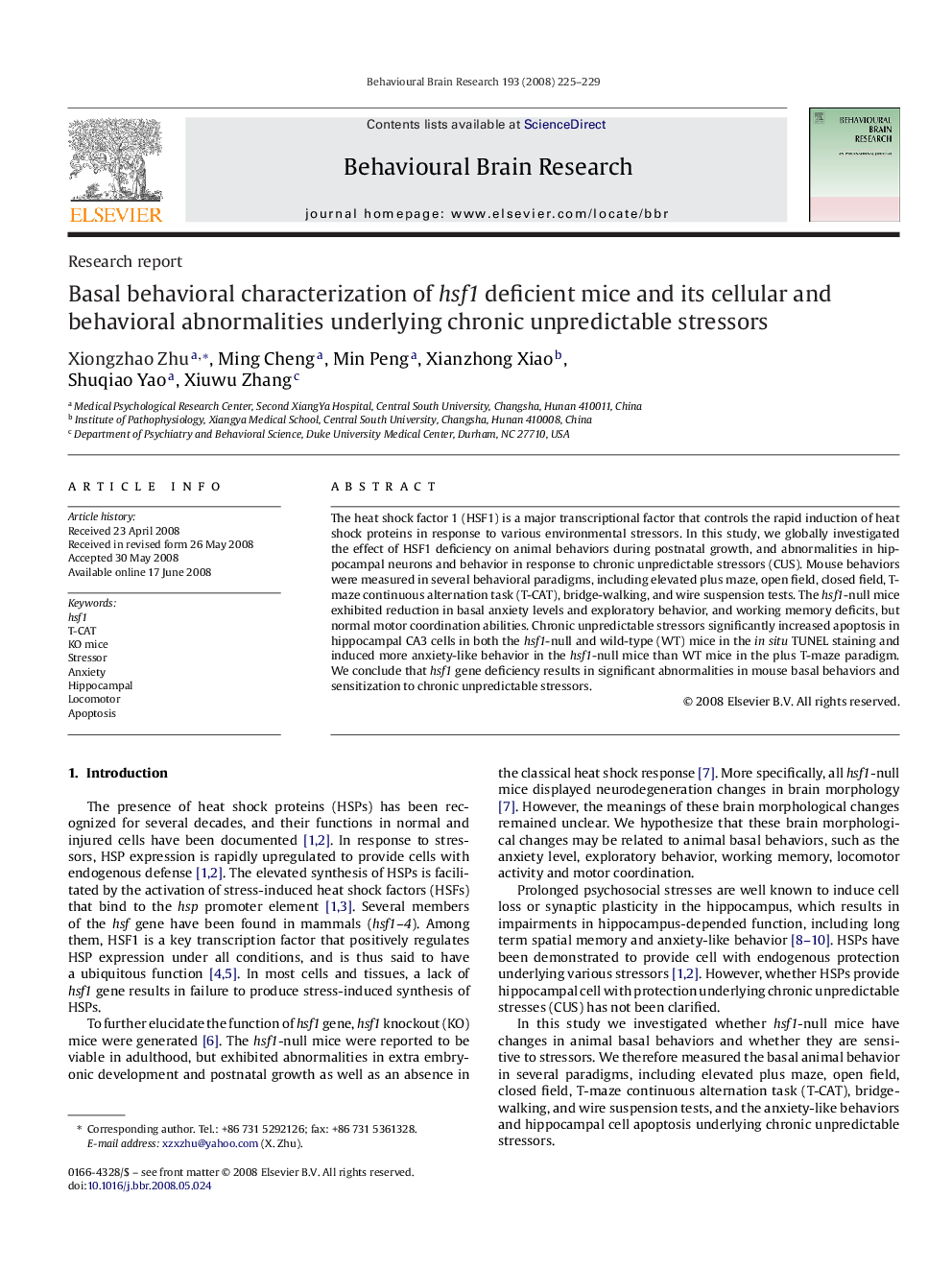| Article ID | Journal | Published Year | Pages | File Type |
|---|---|---|---|---|
| 4315090 | Behavioural Brain Research | 2008 | 5 Pages |
The heat shock factor 1 (HSF1) is a major transcriptional factor that controls the rapid induction of heat shock proteins in response to various environmental stressors. In this study, we globally investigated the effect of HSF1 deficiency on animal behaviors during postnatal growth, and abnormalities in hippocampal neurons and behavior in response to chronic unpredictable stressors (CUS). Mouse behaviors were measured in several behavioral paradigms, including elevated plus maze, open field, closed field, T-maze continuous alternation task (T-CAT), bridge-walking, and wire suspension tests. The hsf1-null mice exhibited reduction in basal anxiety levels and exploratory behavior, and working memory deficits, but normal motor coordination abilities. Chronic unpredictable stressors significantly increased apoptosis in hippocampal CA3 cells in both the hsf1-null and wild-type (WT) mice in the in situ TUNEL staining and induced more anxiety-like behavior in the hsf1-null mice than WT mice in the plus T-maze paradigm. We conclude that hsf1 gene deficiency results in significant abnormalities in mouse basal behaviors and sensitization to chronic unpredictable stressors.
